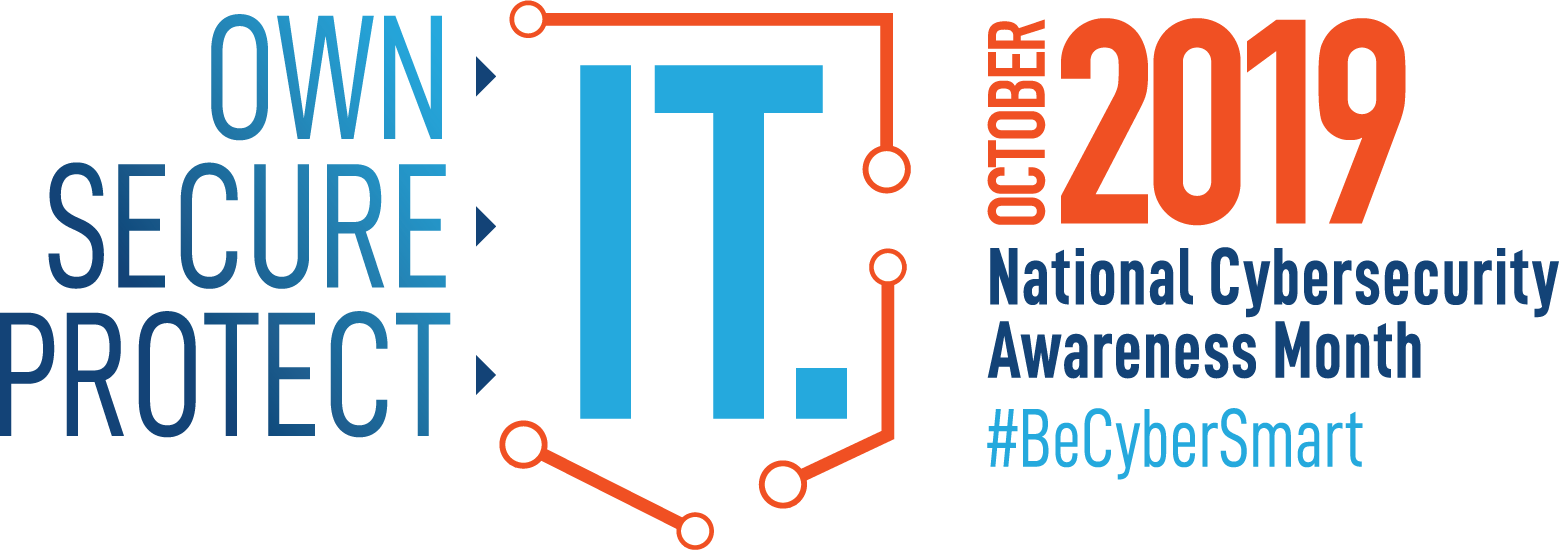Your personal information is valuable. That’s why hackers try to steal it. This year, for National Cyber Security Awareness Month, we’ve got tips to help you keep your personal information from ending up in the hands of a hacker.
Protect your phone
![]() Let’s start with protecting the data on your phone. Set your phone to lock automatically and create a passcode to unlock it. Use at least a 6-digit passcode.
Let’s start with protecting the data on your phone. Set your phone to lock automatically and create a passcode to unlock it. Use at least a 6-digit passcode.
When you notice an update for your phone is available, run it promptly. Those updates could include critical security patches.
Back up your phone regularly. That way, if you lose it, you’ll still have access to your personal information.
Use an app that will help you find your phone if you lose it – or if someone steals it. If it’s the latter, you can use the app to remotely lock your phone or erase the data on it.
Protect your computer
![]() To protect your computer from threats like malware use security software and update it regularly, or set it to update automatically.
To protect your computer from threats like malware use security software and update it regularly, or set it to update automatically.
Protect your accounts
![]() To protect your accounts, use strong passwords. Consider using multi-factor authentication for accounts that offer it. (If you’re trying to enable multi-factor authentication on your account, it might be called two-factor authentication or two-step verification.)
To protect your accounts, use strong passwords. Consider using multi-factor authentication for accounts that offer it. (If you’re trying to enable multi-factor authentication on your account, it might be called two-factor authentication or two-step verification.)
Connect safely
![]() Know what makes a wireless network secure. Start with your own wireless network and router. Then find out how to use public Wi-Fi safely.
Know what makes a wireless network secure. Start with your own wireless network and router. Then find out how to use public Wi-Fi safely.
Keep your info to yourself
![]() Another way to protect your personal information is to recognize scammers’ attempts to steal it. Phishing attacks by email or text may try to trick you into giving up your passwords, account numbers, or other personal information. Or callers might lie about your Social Security number being suspended and urge you to contact them. (Listen to this recording of a Social Security scam.)
Another way to protect your personal information is to recognize scammers’ attempts to steal it. Phishing attacks by email or text may try to trick you into giving up your passwords, account numbers, or other personal information. Or callers might lie about your Social Security number being suspended and urge you to contact them. (Listen to this recording of a Social Security scam.)
Check out more tips about online security. If you want to get more consumer tips in your inbox, sign up for Consumer Alerts.


In reply to Is there no advantage to by Egn6
In reply to Is there no advantage to by Egn6
In reply to Is there no advantage to by Egn6